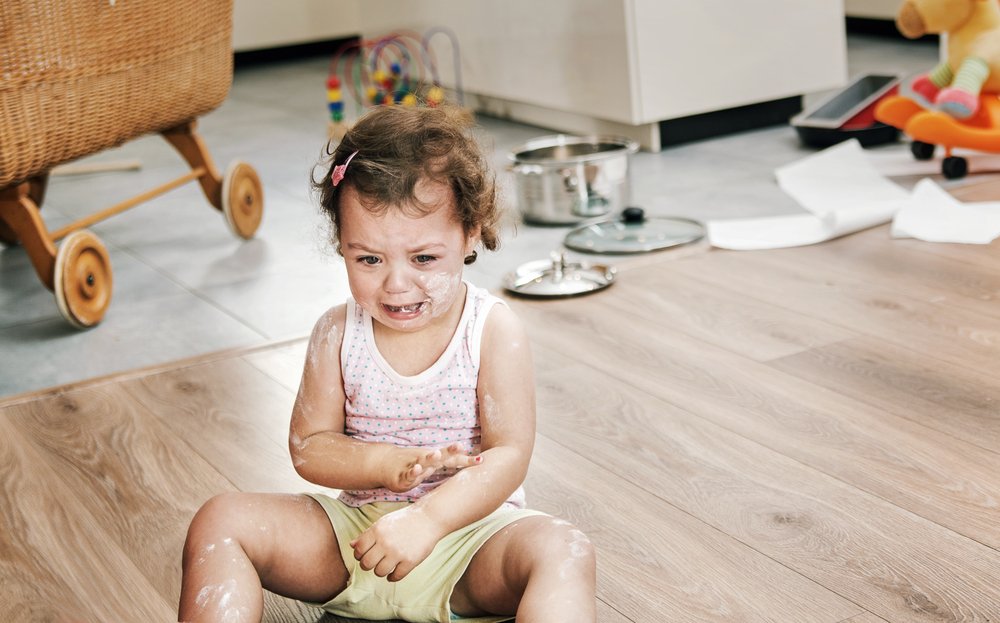Key points:
- Shifting from power-based discipline to collaboration can be a more effective way for parents to influence their children’s behavior positively.
- Dr. Ross W. Greene’s three-step method for addressing misbehavior involves empathy, defining adult concerns, and inviting children to brainstorm solutions collaboratively.
- This approach helps parents and children address recurring issues proactively, develop crucial life skills, and build stronger relationships.
- Instead of trying to mold children into a specific mold, parents should aim to understand and support the unique qualities of their child on their journey to adulthood, fostering a lasting partnership.
Many educational practices are based on incentives and consequences that are all tied to a desired behavior. Why is my child misbehaving? She is not sufficiently motivated to follow the rules. Strategies such as timeouts, counting to three, sticker charts, privilege gain and loss emphasize obedience with adult commands and rely on power to achieve one’s goals.
But, is there a better option to remedy misbehavior? How about shifting away from power and move towards collaboration as the primary means by which a parent can ultimately better influence kids? Giving kids a voice on their own affairs and the necessary tools to solve problems that affects their life is a much better way to prepare a child for the real world.
Parents worry about losing a sense of control and authority if they shift from power to collaboration, however parents fail to recognize that control is simply an illusion. No parent has any total control over their child’s outcome. The best you can aim for is influence. Parents have a lot of influence and their voices have a greater likelihood of being heard when they learn to listen to their kids and involve them in finding solutions to problems that affect their lives. What about expectations? Yes, it’s impossible to parent without expectations. The issue lies when your child is having difficulty meeting a specific expectation. How can a parent or caregiver solve a problem in a cooperative manner? Dr. Ross W. Greene, author of Raising Human Beings outlines his environmentally focused method to remedy misbehavior:
- The Empathy step is where caregivers gather information from a child with the goal of understanding the child’s primary concern, perspective, or point of view on a given unmet expectation.
- The Define Adult Concerns step is where the caregiver shares his or her concern about this issue.
- The Invitation is where child and adult brainstorm solutions that could work, and pick one to try out.
There are several key takeaways from this model:
- Unmet expectations are predictable. Toddlers and caregivers argue regularly about the same issues every day without resolving the issue. Each unmet expectation on the list is predictable and this makes it possible to discuss and resolve them proactively.
- You are not giving in, you are solving a problem. This is a collaborative approach, this does not mean the caregiver loses any sort of authority in the process, but they do gain a problem-solving partner.
- You are not solving a problem, you’re raising a human being.There is more than just problem-solving going on in these three steps. The Empathy step helps the child gets practice at identifying and voicing his or her concerns, which will be a crucial life skill, and the caregiver gets practice at listening to the child. In the Define Adult Concerns step, the child practices empathy, by taking another’s perspective and recognizing how his or her behavior is affecting the other person (more crucial skills), and the caregiver focuses on concerns rather than solutions. In the Invitation step, the caregiver and child can collaboratively explore alternative solutions and ensure that they are satisfactory for both, ultimately resolving disagreements without further conflict.
So many of the adult-child conflicts come down to a power struggle. By shifting the goal from power to collaboration, a whole new world of possibilities emerge. What a relief to admit that you are not always truly in charge and stop the feeling that you should be.
As Greene mentions, “A parent’s job is to figure out who your child is, get comfortable with it, and then help her live a life that is congruent with it”. Many parents disagree with this statement and are determined on changing their children. However, this is not just about solving problematic behavior, but also about building a relationship with your child that will endure a lifetime. As writer Katherine Reynolds mentions, “A parent’s job is not to shape a child into a particular mold, it’s to see the child they have –with their strengths and challenges– and become their partner on the road to adulthood”.








